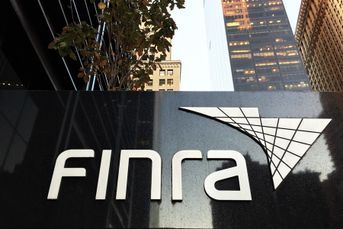Pennsylvania RIA loses to SEC in 12b-1 fee trial

According to the SEC, Ambassador Advisors generated at least $777,000 in fees by investing in 12b-1 share classes when other share classes were available for the same mutual fund.
After an eight-day trial, a jury in the Eastern District of Pennsylvania last week ruled in favor of the Securities and Exchange Commission against a registered investment adviser, Ambassador Advisors, which was charged in 2020 with unlawfully investing advisory clients in mutual fund share classes with marketing or 12b-1 fees when lower-cost mutual fund share classes were available to the clients.
According to the SEC, Ambassador Advisors generated at least $777,000 in fees by investing clients in 12b-1 share classes when other share classes were available for the same fund.
Bernard Bostwick, president of the firm, Robert Kauffman, its founder, and Adrian Young, its chief compliance officer, had also been charged in the share class matter, which covered the period from August 2014 to December 2018. Ambassador Advisors, which is based in Lancaster, Pennsylvania, has $630.7 million in assets under management.
“We are pleased with today’s jury verdict holding the defendants liable for investment advisory fraud,” Gurbir S. Grewal, the director of the SEC’s division of enforcement, said in a statement Wednesday. “Investment advisers have fiduciary duties to act in their client’s best interest, to seek best execution of client transactions, and to fully and fairly disclose all material facts relating to conflicts of interest. And when they don’t, as the jury found today, they put their clients at risk.”
The SEC launched its Share Class Selection Disclosure Initiative in February 2018 to target advisory firms that recommend high-fee mutual funds — those that charged 12b-1 fees kept by the firms — without telling clients that less expensive share classes were available in the same funds.
“The SEC statement makes this situation appear to be more inflammatory than it is,” Robert Nayden, Ambassador Advisors’ director of operations, wrote in an email. “The complaint was part of the SEC’s share class disclosure initiative in which many advisory firms across the country settled as a path of least resistance.”
According to the SEC’s complaint, the firm’s clients received a lower return on their investment, and the executives received additional compensation in the form of 12b-1 fee revenue.
The U.S. District Judge overseeing the case, John M. Gallagher, found in December that Ambassador Advisors failed to adopt and implement written policies and procedures reasonably designed to prevent violations of the Investment Advisers Act of 1940.
[More: Jury finds ex-LPL broker liable in fraudulent sale of annuities]
Learn more about reprints and licensing for this article.








